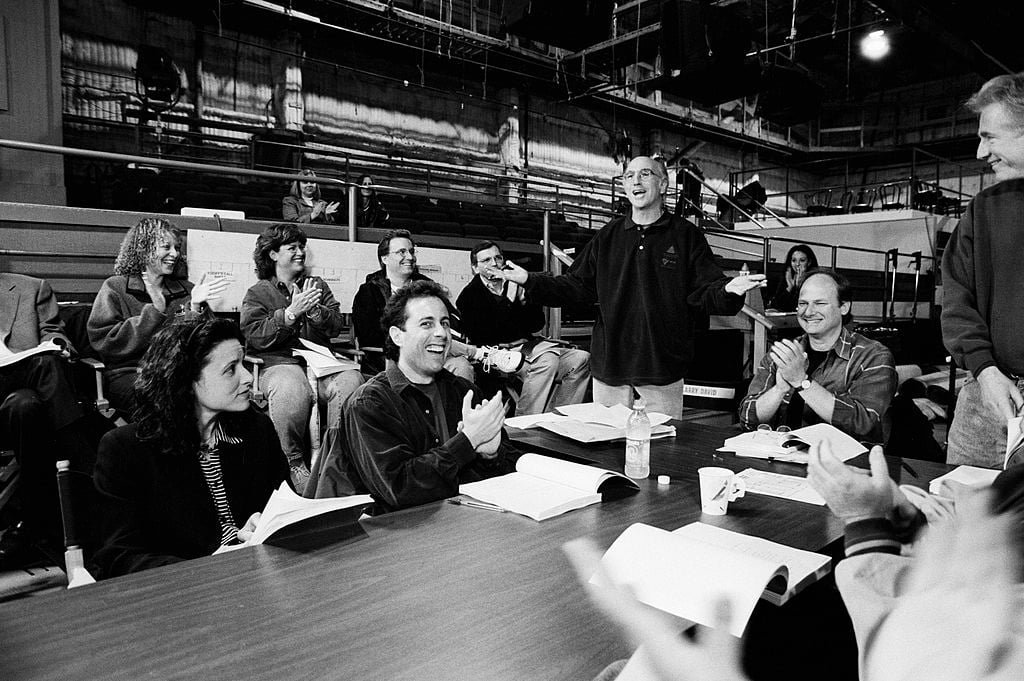You are correct that someone was keeping them on the island but it wasn’t Gilligan. For one, his sabotage would be too obvious, certainly to a professor or a level-headed Midwestern girl even if it wasn’t to the oblivious billionaire (and his wife), the failed starlet, or the inept and probably terminally inebriated ‘Skipper’ who stranded them there. For another, he had no privacy in which to make his plans, given that he shared a small cabin equipped with just hammocks for him and the the captain. Finally, he had no particular motivation to keep everyone on the island. He was constantly berated by nearly everyone and clearly was not getting on with either Ginger or Mary Ann. (And no, he and the Skipper were not lovers; their bickering was purely of the sibling variety.)
No, the ‘villain’ keeping them on the island was ‘Professor’ Roy Hinkley, who despite his handiness in constructing any number of clever mechanical and electrical devices and a keen knowledge of the natural world, somehow could not figure out a way to get a signal to the outside world or fix the relatively minor damage to the S.S. Minnow, and also happened to have the only private cabin on the island. Why was he keeping them there? Was he conducting a psychosocial experiment? Had he gotten in to deep with the Communist Party and was nearly caught sneaking atomic secrets in a hollow nickel? Did he sleep with the dean’s underage daughter? Who can say? But it was he who always arranged for Gilligan to be placed in a linchpin role assuring that the scheme of the week for escaping the island would fail. His plans, his assignments, his nefarious scheming to make it seem that Gilligan was always at fault.
Poirot and Brown are fumbling amateurs compared to the unquenchable thirst for blood of Jessica Fletcher, a serial killer of unmatched record so clever that she often gaslighted her targeted patsies into believing that they had actually committed the murder she had clearly constructed. Week after week death surrounds her and yet no one even thinks to question a kindly widow despite the fact that her entire profession is writing plausible murder scenarios. How many has she killed, and how many more will die by her hand?
Setting aside the question of whether ‘split personalities’, i.e. Dissociative Identity Disorder is a real thing (most cognitive scientists, as opposed to psychologists, would argue that it literally can’t be separate identities even if there is some kind of firewall between memories), Walter White is clearly not suffering from it. It quite consciously makes decisions to “break bad”, and then rationalizes this in the most egregious way possible, a practice that serves him all the way to the point that it gets his Hank, DEA brother-in-law, killed. White has always been bitter, passive-aggressive, and resentful, and rather than compete in a world where his skills and intellect might actually be challenged has deliberately resigned himself to the role of high school chemistry teacher where he will always be the smartest guy in the room (or at least so he believes). He spends so much time lording his knowledge over others and rationalizing himself as a Scarface-esque gangster that he doesn’t acknowledge—or perhaps care—the toll this is taking on himself and others, which marks him as an unrepentant narcissist but there is no indication that he is at any time unaware of what he is doing.
As for my offering, Steve Douglas of My Three Sons is clearly a predator and cult leader who eliminates two of the three titular sons, as well as father-in-law ‘Bub’ and (presumably) his increasingly suspicious wife while taking on younger and credulous new members of the household, actually fleeing cross-country in mid-series because the authorities were probably taking too much of an interest in him. We can only guess at other sacrifices he may have performed off-screen or in his youth, and indeed it is entirely possible that he is the killer Walter Neff, escaped from Death Row in San Quentin and having established himself under the guise of an aeronautical engineer. It is an exercise for the reader to figure out how The Shaggy Dog figures into this but one may readily assume that Douglas had access to high grade LSD and psilocybin-containing mushrooms that would cause anyone affected to hallucinate, and used these to control his growing cult of worshipers even as he became progressively more detached.
Stranger
